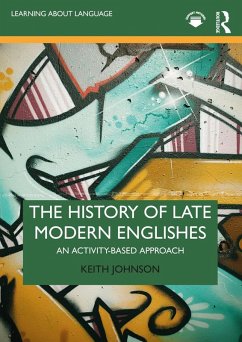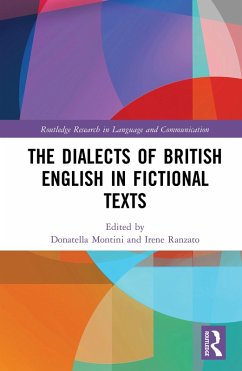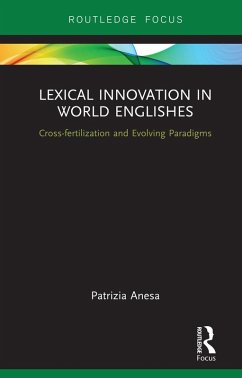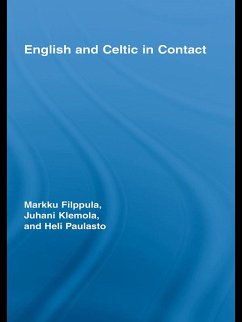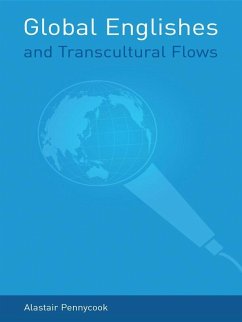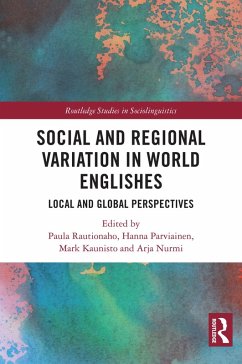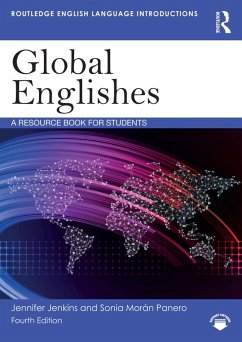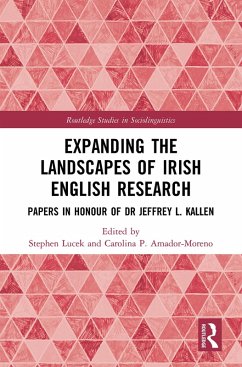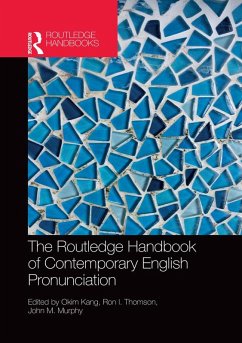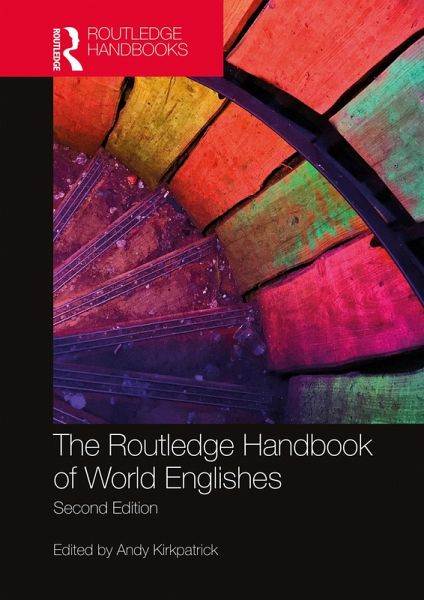
The Routledge Handbook of World Englishes (eBook, PDF)
Versandkostenfrei!
Sofort per Download lieferbar
44,95 €
inkl. MwSt.
Weitere Ausgaben:

PAYBACK Punkte
22 °P sammeln!
The Routledge Handbook of World Englishes constitutes a comprehensive introduction to the study of World Englishes. Split into six sections with 40 contributions, this Handbook discusses how English is operating in a wide range of fields from business to popular culture and from education to new literatures in English and its increasing role as an international lingua franca.Bringing together more than 40 of the world's leading scholars in World Englishes, the sections cover historical perspectives, regional varieties of English from across the world, recent and emerging trends and the pedagog...
The Routledge Handbook of World Englishes constitutes a comprehensive introduction to the study of World Englishes. Split into six sections with 40 contributions, this Handbook discusses how English is operating in a wide range of fields from business to popular culture and from education to new literatures in English and its increasing role as an international lingua franca.
Bringing together more than 40 of the world's leading scholars in World Englishes, the sections cover historical perspectives, regional varieties of English from across the world, recent and emerging trends and the pedagogical implications and the future of Englishes. The Handbook provides a thorough and updated overview of the field, taking into account the new directions in which the discipline is heading. This second edition includes up-to-date descriptions of a wide range of varieties of English and how these reflect the cultures of their new users, including new chapters on varieties in Bangladesh, Uganda, the Maldives and South Africa, as well as covering hot topics such as translanguaging and English after Brexit.
With a new substantial introduction from the editor, the Handbook is an ideal resource for students of applied linguistics, as well as those in related degrees such as applied English language and TESOL/TEFL.
Bringing together more than 40 of the world's leading scholars in World Englishes, the sections cover historical perspectives, regional varieties of English from across the world, recent and emerging trends and the pedagogical implications and the future of Englishes. The Handbook provides a thorough and updated overview of the field, taking into account the new directions in which the discipline is heading. This second edition includes up-to-date descriptions of a wide range of varieties of English and how these reflect the cultures of their new users, including new chapters on varieties in Bangladesh, Uganda, the Maldives and South Africa, as well as covering hot topics such as translanguaging and English after Brexit.
With a new substantial introduction from the editor, the Handbook is an ideal resource for students of applied linguistics, as well as those in related degrees such as applied English language and TESOL/TEFL.
Dieser Download kann aus rechtlichen Gründen nur mit Rechnungsadresse in A, B, BG, CY, CZ, D, DK, EW, E, FIN, F, GR, HR, H, IRL, I, LT, L, LR, M, NL, PL, P, R, S, SLO, SK ausgeliefert werden.




